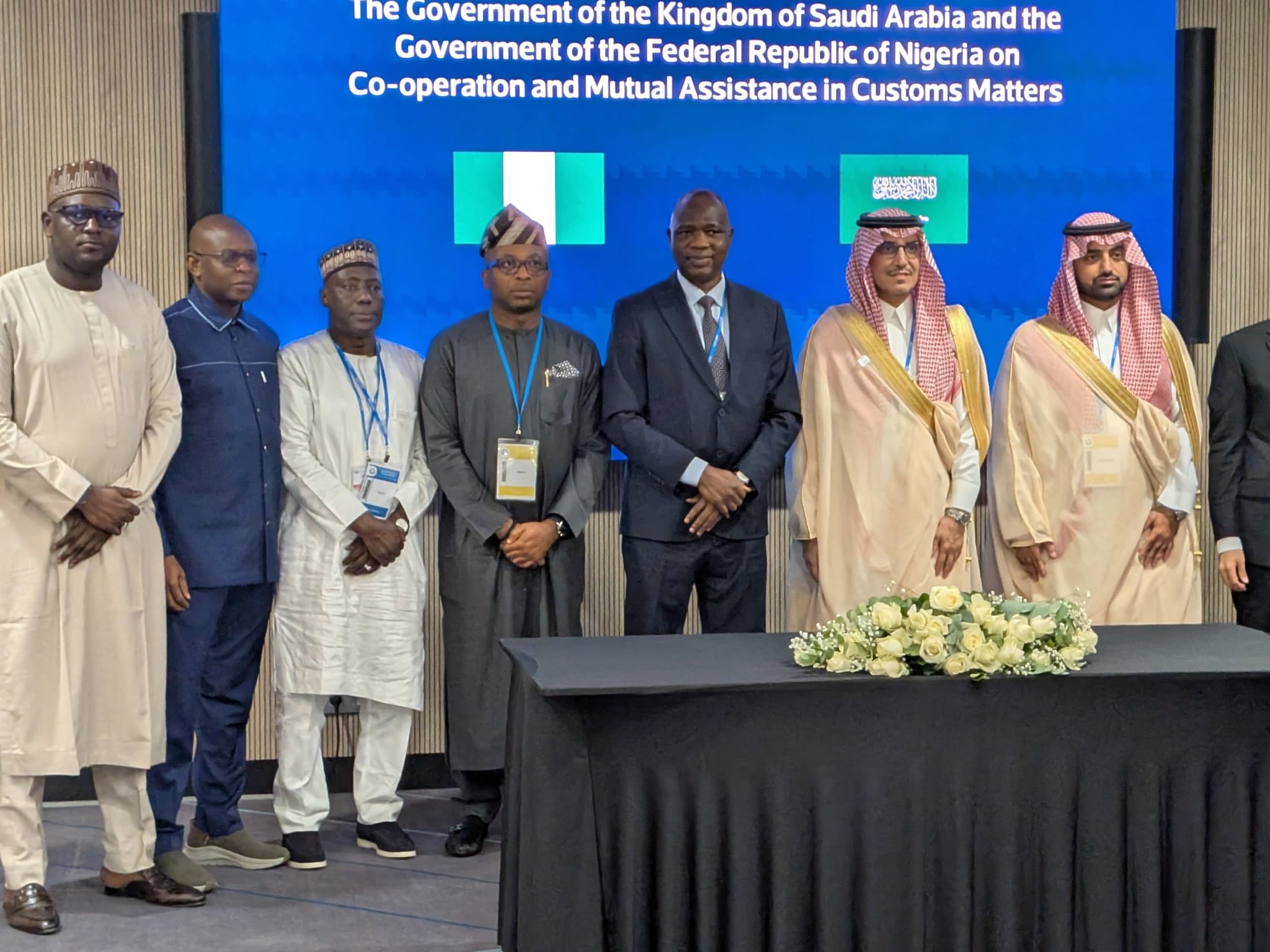The Nigeria Customs Service (NCS) and the Zakat, Tax and Customs Authority of the Kingdom of Saudi Arabia have formally entered into a historic bilateral agreement on cooperation and mutual assistance in customs matters.
The accord was signed on Thursday as a key side event during the 145th/146th Sessions of the Customs Co-operation Council, held at the World Customs Organization (WCO) Headquarters in Brussels. Representing Nigeria at the signing was Comptroller-General of Customs, Adewale Adeniyi, while Governor Suhail bin Mohammed Abanmi signed on behalf of Saudi Arabia.
The agreement marks a diplomatic advancement and underscores a mutual commitment to strengthening customs-to-customs collaboration. It sets a formal framework for administrative assistance in critical areas such as customs enforcement, valuation, classification, revenue protection, and coordinated border management.
Speaking after the ceremony, CGC Adeniyi described the pact as a “major leap” in Nigeria’s strategic customs diplomacy.
“This agreement provides a strong platform for operational synergy in tackling customs offences, sharing intelligence, and ensuring fair and accurate application of customs laws,” he said.
He further emphasised its role in the modernisation of Nigeria’s customs operations, noting that it “aligns with our broader efforts to promote transparency and deepen Nigeria’s integration into the global trade ecosystem”.
The accord is grounded in internationally recognised instruments, particularly the 1953 WCO Recommendation on Mutual Administrative Assistance, and reflects the countries’ shared commitment to cooperative border security and efficient trade facilitation.
Governor Abanmi hailed the agreement as a testament to common priorities between the two nations. “Saudi Arabia welcomes this partnership with Nigeria. Our customs administrations face similar challenges, and through this agreement, we aim to share knowledge, strengthen enforcement, and safeguard our economies from illicit trade,” he said.
Beyond enforcement, the agreement envisions ongoing collaboration in data exchange, joint investigations, and the implementation of customs prohibitions and restrictions as permitted by national laws. It is designed as an open-ended accord, with provisions for mutual amendment and termination via diplomatic channels.
Officials from both countries expressed optimism that the agreement would not only enhance border security but also serve as a catalyst for innovation and trust in global customs administration.
The signing is seen as a vital step in fostering smarter, more integrated trade practices between Africa and the Middle East, with Nigeria and Saudi Arabia poised to lead by example in a rapidly evolving global customs landscape.
